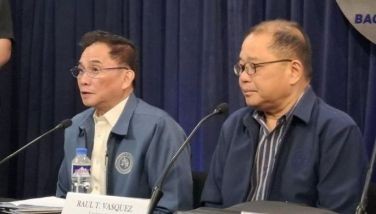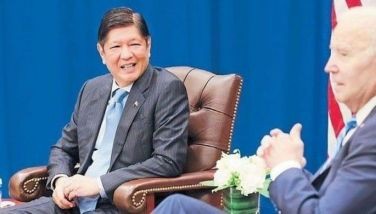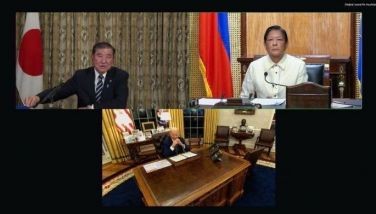Pinoy teachers take Washington
WASHINGTON – The Philippines is an increasingly popular source of manpower for US school systems.
In Prince George’s county in metropolitan Washington the number of Filipino teachers has skyrocketed from 30 in 2004 to about 400 in the current school year.
The starting teacher’s annual salary in the county is $43,481 (P1.9 million), many times what the same teacher would make in the Philippines, but many Filipinos earn much more because of their years of experience, said The Washington Post Sunday magazine in a cover story entitled “Outsourcing Our Schools.”
Salaries for teachers with 20 years experience and a master’s degree can be more than $80,000 (P3.6 million).
More important than salaries, the teachers get a shot at becoming Americans.
If they do well for three years, Prince George’s county will sponsor them for a green card or permanent residency. Although it takes at least five more years to actually obtain the coveted card, for Filipino teachers it is a much easier path to the United States than that of many other immigrants, said the article written by Phuong Ly.
They don’t have to come illegally. They just have to do their jobs.
The 400 Filipino teachers in the county, which has an unusually high crime rate, comprise less than one percent of the school system’s teaching staff but they have made a huge difference simply by staying, the magazine article said.
Just 11 Filipino teachers have quit whereas usually one-third of new teachers nationwide leave the profession within three years, it said.
Many of the Filipino teachers in Prince George’s county are recruited by Arrowhead Manpower Resources, Inc, a private employment agency in Libis, Quezon City.
The recruits pay the agency about $12,000. In return, the agency sets up interviews with school officials and provides a package of services that includes filing visa applications, buying plane tickets and setting them up in furnished apartments.
Mabel Ventura, a teacher profiled in the article said all her life she had worried about not having enough money.
To come to the United States she left behind three children and a husband telling them: “This is the best way. My move is not for me. It’s for all of us.”
As life-changing decisions go Ventura, 46, who previously taught at the exclusive Assumption College in Manila, didn’t agonize that much about going overseas for more money, the article said.
About 10 percent of the country’s 89 million citizens live abroad known collectively as overseas Filipino workers and they remit about $14 billion in foreign exchange to the Philippines annually.
In Ventura’s case, three of her relatives are nurses in Britain and four others work in telecommunications or office jobs in Dubai.
She said what surprised her about the elementary school where she was first assigned to in Prince George’s county was the number of computers in each classroom and the textbooks, picture books and curriculum guides that lined the shelves.
Teachers received a laptop from the school system and they didn’t have to buy their own markers and colored paper. Everything was provided.
“If only we had these materials in the Philippines, we would have the best schools. We wouldn’t be in the Third World anymore,” she said.
But all is not wine and roses.
The stress of their new lives, loneliness, cultural isolation and the bitter cold in winter can be overwhelming.
Last November Irenea Apao, a 41-year-old mother of two and a high school math teacher in Baltimore hanged herself in her apartment after two years away from home.
She was separated from her husband and fellow teachers said she was struggling financially.
In May 2007, 26-year old Fe Bolado, a Baltimore middle school teacher also hanged herself.
She was newly married and had brought her husband with her but friends said their relationship had been falling apart.
The magazine article said the Philippines was rich in good teachers, a legacy left over from its time as a US colony.
“In the early 1900s shiploads of American teachers arrived in the Philippines to set up free primary schools and teacher training institutes. Today the tide has turned the other way,” it said.
- Latest
- Trending
































